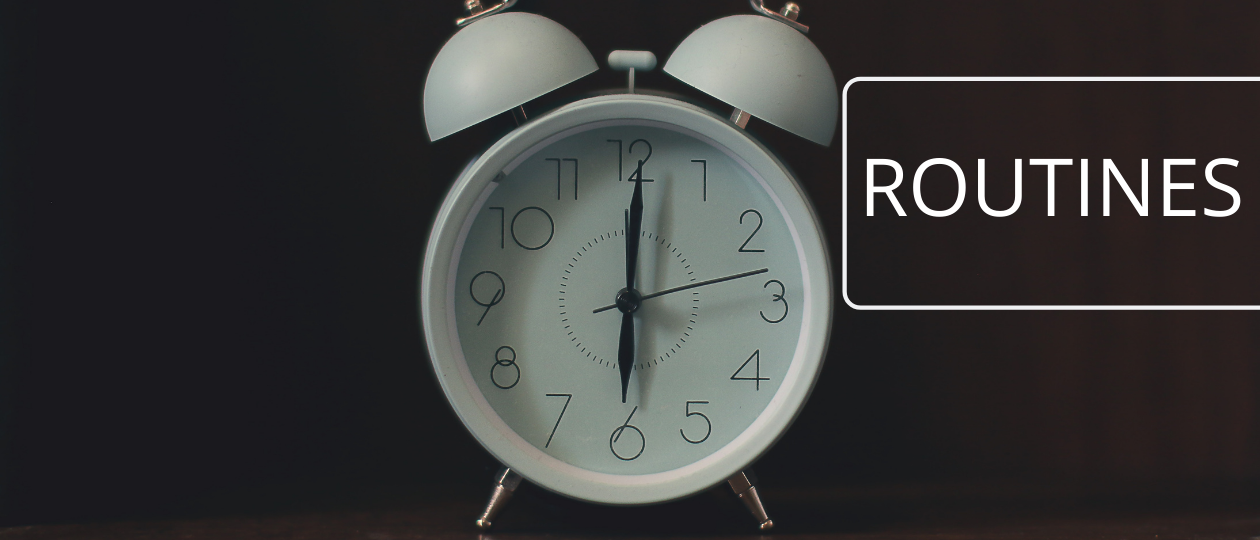Routines
I start this week's post knowing that for many of you, your immediate reaction will be negative. People like to hear that they should pursue their passions, that they should give 110 percent, that they should eliminate distractions—but something about the idea of forming routines and sticking by them seems stifling. It’s not an emotional, passionate idea. It’s boring. But it’s not an exaggeration to say that it saved my career.
I finished last in my class in high school. In both high school and college, I didn’t know if I’d be allowed to graduate until the day before the ceremony. At first, I thought I was stupid, but eventually, I took an IQ test and actually scored very high. That was almost worse, because then everyone thought I was just lazy. This was before the idea of ADHD and those sorts of things had worked their way into schools, so it took me a long time to figure out how my mind worked. But once I did, and once I started using routines to make it work for me instead of against me, it was like flicking on the lights in a dark room.
In fact, it seems that routines are one of the common habits of successful people. One study out of Harvard University followed people of genius-level intellect who were successful in their chosen fields, and every single one that they could find had routines in place which had led them to their outstanding results. According to the World Health Organization, adherence to routines is the most important thing for a healthy life. Unfortunately, only about 50 percent of people manage to put them in place and stick by them.
So how can you do what those people can’t, and make sure that your routines work for you in the best way possible? Well, my definition of a habit is a repeated behavior involving momentary time commitment that requires little thought. The part of that I really want to drive home is, “requires little thought.” See, if you start to think too much in the moment of a change you’re trying to make, it’s very likely you’ll end up defaulting to old habits. I think that’s probably why it’s so much easier to change your habits a little at a time—because when the change you’re making is something small, you don’t have to think much about it.
There’s a really prevalent theory in psychology that we have a finite amount of willpower each day with which to make decisions, especially hard decisions. At some point in the day, it runs out, and after that doing any sort of work that requires us to think deeply and make conscious decisions will be much more difficult. Routines give us a couple of different advantages here. First of all, by creating routines for all the little things throughout your day—things like meals, exercise, break time, etc.—you eliminate the need to make a conscious decision about them each day. You just work according to your schedule. Additionally, having a good routine with a regular start time for the big things can ease the effort of getting started, leaving you with more time and energy for the work ahead of you.
So this week, I encourage you to take a look at the routines—or lack of routines—in your own daily life. Try implementing some new habit, something small enough not to think much about. We tend to think of new routines as restricting us, but get them to work for you and you’ll save your strength for the really important things, and find yourself free to do so much more.
Have a blessed, wonderful day!
Alex Loyd



